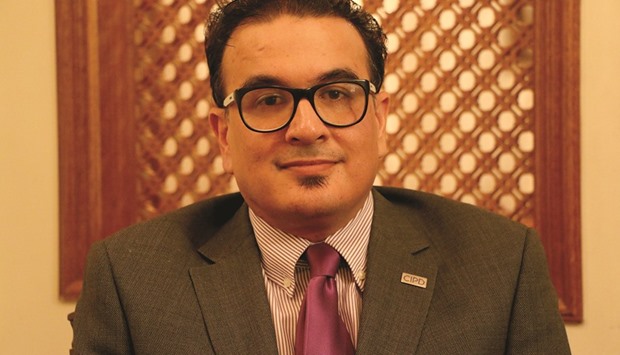More than 100 faculty members of Pak Shamaa School attend lecture on
emotional intelligence by HR trainer Hassan Imam.
In order to succeed in today’s fast-changing world, one needs to complement his or her intelligence quotient (IQ) with emotional intelligence. It gives you the ability to present and showcase your true potential and thus make you excel. And this stands true for both individuals and organisations.
Hassan Imam, a certified human resources (HR) trainer, told this to the faculty members of Pak Shamaa School here in a special lecture organised by the school. More than 100 teachers from the school attended the talk where Imam explained the importance of the ability to adapt to your environment and the organisational needs. “Generally it is said that IQ can take you to a university or a job. However, if you do not know how to present yourself or showcase your skills and able to adjust into the culture, then you remain disturbed and feel as if the whole environment is against you,” Imam tells the attendees.
The IQ, he says, is something which is inbuilt based on your genetic set up, but the emotional quotient is something that can always be enhanced based on the requirements.
In today’s economy, he says, it is more about how you are going to sell your ideas or express yourself or convince people. And if you cannot do these things that you can be classified as nerds but you cannot be a socio-culturally acceptable human being.
“If as an individual I am unable to excel or I do not know my shortcomings or I do not know in which areas I need improvement or I don’t know how and what do I need to do to excel, it means I am ignorant or naïve,” says Imam.
Speaking to Community in post-lecture chat, Imam says it is the responsibility of both individuals and organisations to equip themselves with skills from emotional intelligence.
“In this economic downturn era, if organisations are not organised, what happens is they are going to have cultural shocks. And when there are cultural shocks, it means there would be wastage; either of productivity, quality of work or talent,” says the professional human resources trainer. “The smart organisations always develop a culture where people can be nurtured. However, I think it is the responsibility of the individual to make sure that he or she should not be a ‘dinosaur’. If you do not change according to the need, you become a ‘dinosaur’,” he smiles.
Imam suggests that organisations that opt for training their human resource in emotional intelligence are better off than those who do not. Now the budgets are tight in almost all organisations so they do not want anything to go in waste, not even a single dollar. What incentives are there for them to go for extra training?
“I would say it is a double-edged sword. If you do not train your people, it will be drainage and also the individuals would feel there is no career so they would go out. So neither you get anything to the organisation’s benefit nor are you able to retain your people,” Imam explains.
However, if the organisation does train people in emotional intelligence, it would have reduced drainage, the employees are more cultured and nurtured and they have more skills. As a certified HR person, Imam has been holding management training for years which inculcate in people soft skills.
However, now he says he has moved the training where you can transform either the culture of the organisation or people’s transformation in terms of how to behave in a social or organisational setup which he calls the emotional intelligence.
“If I have to do in house training, I just do not go there and do it. First, I like to know the culture of the organisations. It gives me good idea and I can envisage the needs,” says Imam. “I call myself a cook. You want Indian, Italian, Chinese, whatever, you tell me. I am going to do it for you but you tell me what your requirement is,” he adds.
Imam says his role is to identify the gaps and give recipes to fix them. He started his teaching and training career in 2002 and has been associated with Punjab University, various colleges and health departments in Pakistan.
“I started with healthcare which was kind of my first love but now I have moved to various industries like I have moved to chemical, education and others,” he adds.
In Qatar, he has worked with companies in the industry of construction with a particular focus on their human resource trainings.

EXTRA MILE: Hassan Imam says emotional intelligence is important to professionally excel in life. Photo by Umer Nangiana
